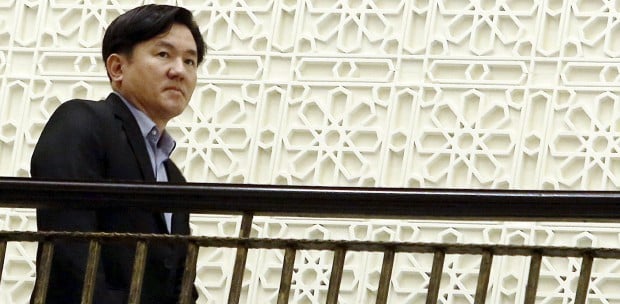KUALA LUMPUR: The High Court here has ruled that a postnuptial agreement between a business tycoon and his Singapore-born wife, allowing the husband to keep a mistress during the subsistence of their marriage, is valid.
FMT reported that Justice Evrol Mariette Peters presided over the case and said the agreement was entered into voluntarily by both parties.
The wife, referred to as HLC, entered into this agreement with her husband, identified as PTL, in August 1997, just a month after they got married.
Peters said such agreements between non-Muslim spouses hold legal recognition under Section 56 of the Law Reform (Marriage and Divorce) Act 1976.
"As long as there is no violation of any law, parties to a marriage have the right to make decisions about their relationships and lifestyle preferences according to their unique needs, desires, and circumstances," Peters was quoted as saying in an 87-page judgment posted on the judiciary's website earlier this week.
HLC, who is a graduate of the National University of Singapore, had filed for divorce and contested the validity of the agreement, claiming she was unaware of its implications and signed it under pressure.
However, Peters dismissed this claim, noting that HLC had signed the agreement in the presence of witnesses and had initialled every page.
The case revealed that HLC had a child from a previous marriage and subsequently had five children with PTL.
One clause in their agreement permitted PTL, who had significant business interests in Terengganu, to maintain a mistress.
In October 2020, the wife left the matrimonial home with the children, citing the husband's adultery and his unreasonable behaviour.
She went on to petition for divorce and sought maintenance for herself and two of their children, the equal division of matrimonial assets, and damages from a co-respondent identified as GEN, whom she accused of committing adultery with her husband which in turn resulted in the breakdown of their marriage.
Meanwhile, the husband cross-petitioned specifically for monetary claims under a marital agreement and the return of money and jewellery.
Peters ruled that the husband's act of maintaining another woman was not illegal.
The judge also said the wife was not entitled to rely on Section 54(1)(a) of the 1976 Act to cite adultery as the cause of the breakdown of their marriage as she had tolerated the husband's infidelity.
Section 54(1)(a) provides that the court, in its inquiry into the breakdown of a marriage, can take adultery into account if "the petitioner finds it intolerable to live with the respondent" as a result.
Despite this, the judge granted the couple a divorce, making the decree nisi absolute with immediate effect.
"In my view, the marriage has run its natural course. It seems clear that the petitioner initially viewed the union as a means of ensuring financial stability for herself and (her son).
"Despite subsequently having five children with the respondent, she remained in the marriage primarily for convenience and financial security.
"Conversely, the respondent admitted to marrying the petitioner more out of a sense of duty rather than genuine affection, as she had become pregnant out of wedlock," said Peters.
Describing the respondent as an "absentee father", the judge said: "It was my conclusion, therefore, that while neither adultery nor abuse was proved, both parties bore equal responsibility for the irretrievable breakdown of their marriage."
Peters also ruled that the terms of the couple's agreement regarding custody and maintenance were not binding.
She ordered the husband to pay the wife RM10,000 for spousal maintenance and another RM6,000 for the maintenance of two of their children.
The judge also made orders distributing the couple's matrimonial assets including immovable properties, vehicles, money, and shares in companies.
Peters, however, rejected the wife's claim for damages from GEN, having ruled that there was no proof of adultery.
Lawyers M Kamalam and Eugene Teo represented the wife, while Lee Sok Wah and Nur Amira represented the husband.





